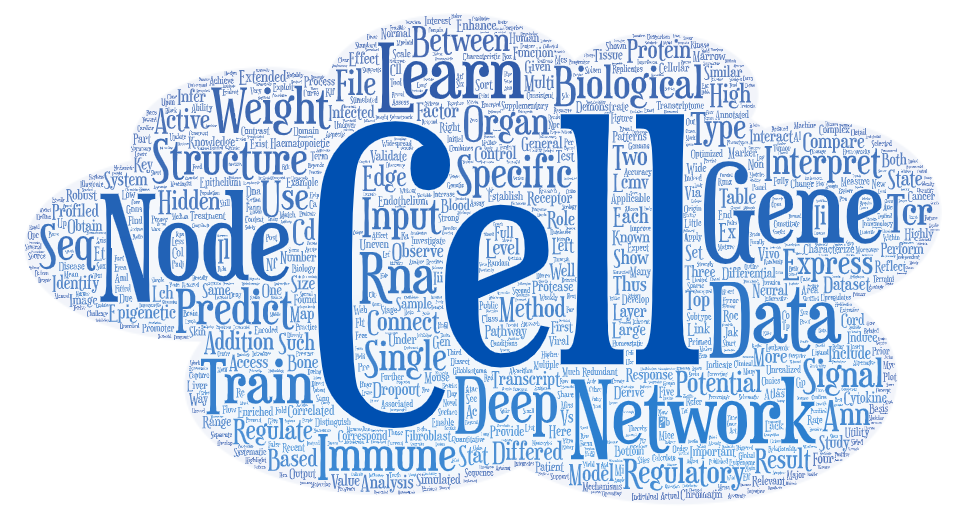Research

Main research topics
Multi-omics and single-cell analyses: Molecular systems are being profiled on multiple layers and on the single-cell or spatial level. Interpretation of the resulting data requires multiple steps of bioinformatic processing and downstream exploratory analysis. We apply and develop computational methods to analyze and interpret -omics data including transcriptomics, proteomics, and epigenomics.
Network biology: Biological regulation is often thought to occur in confined events and signaling pathways but also works through large and complex networks with extensive cross-talk. Network biology (based on graph theory) provides the computational and mathematical tools to study complex systems and to predict novel regulatory events and biological pathways. We apply network biology to better understand regulation within and between cells.
Machine learning: Big biological data require computational tools that can handle (and profit from) the availability of large datasets. Machine learning excels at learning complex relationships, and provides a rigorous framework for predicting one type of data from another. We apply and develop machine-learning approaches tailored to studying biological systems and predicting across multi-omics data.
Approaches
Collaborations with experimental molecular biologists, to aid in the generation and interpretation of big datasets
Methods development of broadly applicable prediction and analysis tools
Software and database development for easy access to computational tools and data resources
Meta-analyses to answer broad biological questions and generate biochemically testable hypotheses
Example applications to biological systems
JAK-STAT signaling (ongoing): Hierarchies and Monarchies in JAK-STAT signaling ( link)
Hematopoiesis and chromatin factors (published): In vivo screening characterizes chromatin factor functions during normal and malignant hematopoiesis (Lara-Astiaso, Goñi-Salaverri, Mendieta-Esteban, et al., Nature Genetics, 2023 link)
Neuroblastoma (published): Single-cell transcriptomics and epigenomics unravel the role of monocytes in neuroblastoma bone marrow metastasis. (Fetahu, Esser-Skala, Dnyansagar, et al., Nature Communications, 2023 link)
Structural cells / immunity (published):Structural cells are key regulators of organ-specific immune responses. (Krausgruber and Fortelny et al, Nature, 2020 link)
Diabetes / drug treatment (published):Single-cell RNA-seq with spike-in cells enables accurate quantification of cell-specific drug effects in pancreatic islets. (Marquina-Sanchez, Fortelny, Farlik, et al, Genome Biol, 2020 link)
Leukemia (published): Chromatin mapping and single-cell immune profiling define the temporal dynamics of ibrutinib response in CLL. (Rendeiro and Krausgruber et al, Nat Commun, 2020 link)
Glioblastoma (published):The DNA methylation landscape of glioblastoma disease progression shows extensive heterogeneity in time and space. (Klughammer and Kiesel et al., Nature Medicine, 2018. link)
Protease biology (published):Network Analyses Reveal Pervasive Functional Regulation Between Proteases in the Human Protease Web. (Fortelny et al, PLoS Biology, 2014 link)




